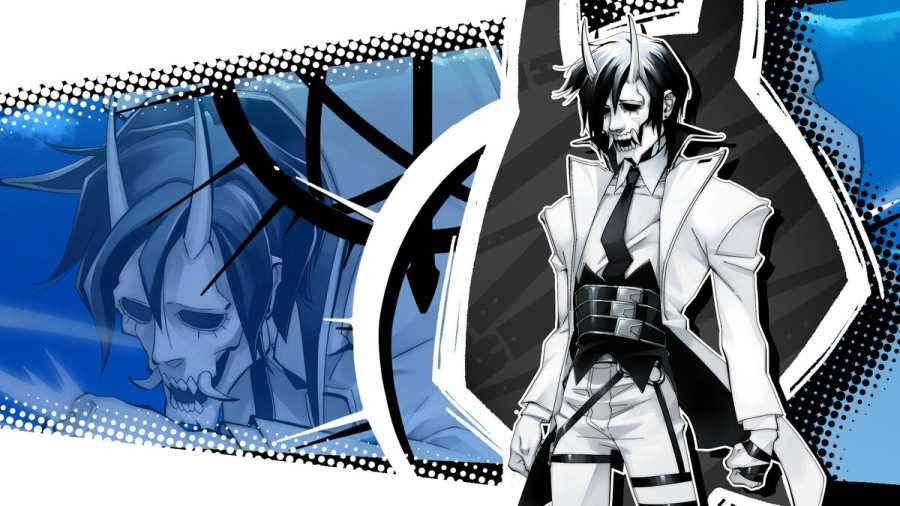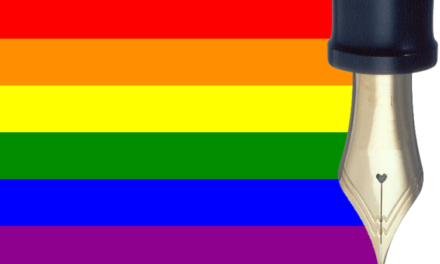I see that there is a fight going on to eradicate Hungarian words. I don't know who organizes it, but it works for sure.
Well, it started when my life turned out to be such that I couldn't listen to Hungarian-language radio or watch TV for a whole year. Then the wheel of time turned, and the TV was playing all day in my environment. After a while, I noticed that I never hear the Hungarian word ... - no, I won't tell you which one - but only the Latin equivalent, which sounds like generation. I then consciously observed, and my initial, not yet conscious observation was confirmed.
I couldn't stop myself, and I asked some of my dear friends, who I knew would not take this kind of examination from me as an insult, how they say the word "generation" in Hungarian. Hold on now: they couldn't tell.
After that, I gave my head for further tests. My other test words were the everyday "current", "legal" and "intense". The result was similar. If someone thinks that I purposefully chose my subjects from some uneducated stratum, they are very wrong. They were all high school graduates, well-mannered, pleasant, respected, working people, parents and grandparents. They are not particularly well-read, but they are not uneducated at all. They are people with whom I always like to talk, because I can be with them, because they have their own healthy thoughts. I can honestly say that I love and appreciate them. When I told them the corresponding Hungarian words, they slapped their foreheads: "of course it is", "how could I not have thought of it".
So it's not that they didn't know, it's just that in our world exposed to the rule (in Hungarian: dominance) of the media, they encountered them so long ago that they sank into their subconscious and now only the foreign equivalent they hear every day jumps to mind. It has become "passive knowledge". But how many can there be, especially in the younger generations, who really don't know anymore? And not only these. This is why I thought that if a young person today were to accidentally pick up a book written in an older, for example, "late Hungarian" language before the Second World War, and come across unfamiliar Hungarian words such as "generation" or "contemporary ”, or “legal”, in order to understand them, you can take out the snob dictionary and see how they sound in “New Hungarian”. Because "generation", "current" and "legal" are already "okay", everyone knows them. Their Hungarian equivalent is no longer certain.
A high school teacher told me that the students don't like Jókai because they don't understand him because of too many foreign words. I confess, I don't understand it. I was not a child prodigy and I am not a literary genius. I earned my daily income as a simple engineer. Membership in the writers' association was never a condition of my job, and I never once had to take Hungarian language courses. Nevertheless, I read the vast majority of Jóka's novels when I was in primary school. I must not have understood everything exactly, but I was somehow like a small child learning to speak: he hears the same thing many times and eventually understands it. What would happen to small children learning to speak if they told their parents not to use so many "foreign" words, i.e. words that are not yet known to them, because they only want to hear the words they already know. Tell me, when would they learn to speak? How would they get over the babbling?
Of course, there is no such thing, because a small child learning to speak is not stupid. In fact, he's very smart. He wants to learn and he does. When he hears a new word, he starts repeating it, even if he doesn't understand it or can't pronounce it properly. A grandmother told me the following story, whose little grandson lived abroad with his parents. To the parents' credit, they tried to teach the child Hungarian and brought him to his grandmother every summer. Once, on her way home from shopping, the grandmother noticed that the little girl was dragging her palm along the fence slats, every time her hand slipped from one slat to the other, she was muttering, excuse me, "bam, bam, bam, bam," continuously. .
The poor grandmother didn't even know what to do in her confusion, she just watched to see if anyone would hear her and thought that maybe it would be better if she didn't scold her, but let it go, just in case she would forget. The child obviously did not know the word, perhaps he heard it from someone in the store or on the street, and he started to practice it, driven by his natural instinct to learn. But today's high school students, or at least many of them, are said to have lost this early childhood learning ability. No one should bother them with learning new words, whether Hungarian or foreign, because they are already smart enough. They don't want to know more words, they don't want to speak better, more beautifully. After all, you can really understand "chasing" (A nice Hungarian word again, right?) and "Joci menni venni eni hambit mekiben". If we even mix this with English words, we already have the modern (sorry: modern, even more modern) direction of Hungarian language development in front of us, pidgin Hungarian.
Besides, nowadays a TV reporter uses at least as many foreign words as Jókai did back then, but preferably English. I confess that I am horrified when sometimes on the screen a highly knowledgeable (and I say this honestly) university professor involuntarily utters English expressions as if it were his native language: "Well, if anything, then this is really a "scalp"!" Or: "szoutusej", and continues in Hungarian. Or are you just playing it because it's "trendy" today? You'd rather say "huh". Then I'd know that you suddenly couldn't find the right words, which can happen to everyone, especially when you're trying to articulate exactly what you're trying to say. But "izé", isn't it, isn't it pretty (although I think it's prettier than the popular ööö, because at least it's shorter), and "szóutuséj" - well, if anything, it's really a beautiful, tasty, Hungarian word. So much so that even Petőfi jumps in like this: saying: "I'll fly up in my mind at that point".
The beautiful, new Hungarian word that will soon follow the generation in popularity is "hesitál". This word is absolutely necessary, because the rural, village, peasant, Hungarian-speaking, words consisting of empty syllables such as hesitating, hesitating, bewildered, uncertain are unable to express the content richness and semantic depth inherent in hesitál. Not to mention the endless number of imagery associated with hesitál and the richness of mood. Therefore, if we have the means, we should never hesitate to hesitate.
I also heard the following on TV: "the Balkans have always been a hotspot, and everyone knows that they still are today, either in the mainstream media or in the blogosphere". I think a Jókai work is a small-group storybook in terms of its vocabulary. But it's also not a dog when a complex English term, in our case Americanism, is literally translated, and the really beautiful, but only slightly (in Hungarian: discreetly) silicone-lipped presenter lady with a telling, charming smile says "Indian" instead of old women's summer or beautiful autumn days summer", while his facial expression suggests that "we, with hollow ears, know what it's about", we are with the rural "peasants" like Annalena Baerbok with her voters. In this way, the world can be made aware of how well-educated someone is. Well, "Az Első Magyar Snobszótár" offers unique help for such things as well.
Another favorite of mine is an ad for an ointment. It goes something like this: “its formula penetrates deep into the skin and… etc.”. I once had an acquaintance who was a pharmacist. I heard the abbreviation FO-NO from him. (I confess, I only remembered that it was "fono", I looked the rest up on the Internet.) It is an abbreviation of the Latin term "Formulae Normales", which could be translated as normal formulas, because none of the words are underlined by the spell checker. As far as I know, this is an official collection of drug prescriptions that pharmacists can prepare at the pharmacy. So, according to the ad, the recipe of the ointment penetrates deep into the skin. The formula - I checked - also has other Hungarian meanings, but they are of no interest now. What is important is that "formula" has become a kind of magic word in the advertisements of medicines and cosmetics. These days, there is no ad that misses you.
I don't know if they still remember it, at one time this was how the "women's leg" was. I don't know what that meant, but there was no salve, or any other beauty product or cleaning agent that didn't have some "feminine" mixed in it. (In order not to be laughed at, I will tell you that from my former chemistry studies I still remember what pH is. I wrote "woman's stool" on purpose, because the wording of the ads gave the impression that "woman's stool" was some kind of miracle drug, a special substance, a mixture of ingredients (sorry: mixture component) would have been, like hyaluronic acid nowadays, or rather the - "formula".)
I saw the most terrible thing on TV in an advertisement of a Western company: "Make everything wow again in your garden!" I never looked up the meaning of this word because I quickly realized from the context that it meant something like an appreciative whine. But now I looked. It's pronounced vau. Like our dog barking. It means "meowing", "pulling". This is also good. And in US slang, it means something great, successful. Oh well. This is what Hungarians need! Wow! Let's bark, Hungarians! I remembered an old reading about this. I seem to remember its address, but I dare not write it down, because I could easily be wrong. I remember that it was written by an American lady and she spoke with terrible scorn about her fellow country girls. He found that there was nothing to save American upper-middle-class women from being permanently dumbed down. That's right! I remember this verbatim. According to him, their speech consists only of ahs and ohs, but something tells me that the original American text might have included wow. Maybe this will be the trend here too? Is this ad the beginning?
Be honest, how many times do you hear "evacuate", "extreme", "general", "conflict", "escalate", etc. in Hungarian. I almost never. In fact, I've even heard on television that he "dominates" and, hold on, "ostracizes". Don't get me wrong, I know what that means. I can also speak English. But in my more than 82 years spent on this round earth, I have never met him either in spoken or written Hungarian text. This has already happened, because "excommunicate" and "curse" have become outdated. But it is the same with the words parliament and parliament. Sometimes you can still hear them, but nowadays it is almost exclusively the parliament. The building is also a parliament, the institution is also a parliament - I think, out of sheer economy of words. Do not occupy memory slots in our brains from competitive knowledge. Summarizing what has been said, I see that there is a fight to eradicate Hungarian words. I don't know who organizes it, but it works for sure.
(…)
Until now, I avoided hot porridge, but now I will ask the dear readers if they know how the word "generation" sounds in Hungarian. Since we are not in a classroom, where I ask the question about the chair and you can answer, I will tell you. The most common Hungarian version of the word was generation, I'll say it again: it was. It is now extinct. In many cases, it is also used in the meaning of age group. You still hear this word sometimes. A slightly older, but very beautiful version is the "(human) folk" used by János Arany, and the same "offspring". You see, there are four instead of the word degenerating generation of spirit and mind that is exclusively used today. How did János Arany write it literally? "People in different clothes, different offspring grew up..." This is still the case today. Only while Arany continued that "He who conquers with reason, not with physical strength", today he could rather say "he who degenerates and does not live with his mind". I am confident that this is only true of a minority that is fighting on the stage of public life.
I wrote "degeneráládiz" on purpose, thinking that maybe more people would understand it than if I had written it in Hungarian. Do you know how to say degeneration in Hungarian? If they don't know, don't run for the Dictionary of Foreign Words! I'll tell you: Degeneracy. Today's Western, degenerate generation, degenerate generation in New Hungarian, has set its sights on extreme (in New Hungarian: extreme) degeneracy on both its colorful and green flags, and the domestic, so-called left-wing, gender and green activists all proclaim this with "unanimous enthusiasm" (like the communists in the past) energized by the dividends of Western baksis hammered into small and large paper boxes, hiding their internationalist, man-killing and nature-killing goals behind the crumbling Spanish wall of "human rights".
Featured image: YouTube screenshot













